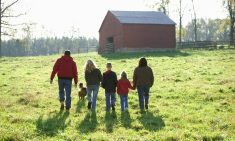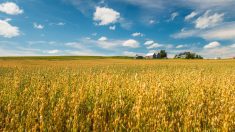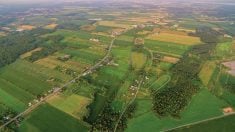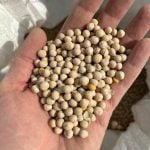It looks like 2022-level profitability is over for farms in Western Canada. The decline of commodity markets combined with ever-increasing costs is pressuring 2025 farm budgets.
So, if grain farming is back to squeaking out a profit for the foreseeable future, what can we do about it?
1. Confront the facts, but don’t lose faith
Read Also

Winter downtime: Organize your farm records now for smoother operation
How to organize farm finances paperwork
In his book, Good to Great, Jim Collins shares a quote from Vietnam prisoner-of-war Admiral Jim Stockdale who was tortured over 20 times during an eight-year imprisonment.
Stockdale said, “You must never confuse faith that you will prevail in the end — which you can never afford to lose — with the discipline to confront the most brutal facts of your current reality, whatever they might be.”
What are the brutal facts of your current reality? How is your cash-flow situation? What loan payments are coming due? What’s your net worth or equity level? How realistic are your internal valuations for inventory, machinery or land? How good is the relationship with your lender?
2. Up-to-date reporting
If you can’t answer the questions above, you likely have a financial reporting issue. The days of doing an entire year of bookkeeping annually in the winter months is increasingly problematic.
This is especially true for operations with significant debt. Banks, advisors and the dollars invested every spring require more up-to-date information. Once the financial reporting issue is solved, better budgeting is possible. Remember, though, that all bookkeepers are not created equal. Find a good bookkeeper or become one.
3. Zero-base budgeting
As farms grow larger, winters get shorter and next year’s planning begins earlier. The annual budget should be set once crop rotation, crop inputs and acres have been finalized.
Instead of taking last year’s budget and using that as your starting point, zero-base budgeting starts with a blank page and validates every line item on your budget based on your goals and priorities. Everything is fair game including acres, machinery, labour, inputs and consultants.
Crop mixes, machinery purchases and evaluating land options are examples where zero-base budgeting “decision packages” can be developed.
Decision packages should include costs and benefits, budgets, alternative options that were considered and recommended decisions.
Zero-base budgeting also allows more members of your farm and advisory team to become involved with the annual budgeting process.
4. Off-farm employment
As the old saying goes, behind every successful farmer or rancher is a spouse who works in town. Off-farm employment was normal in the rural Saskatchewan I grew up in and I don’t think that’s ever changed. Farming is usually a low-margin business and I’ve witnessed impressive farm growth achieved with off-farm employment.
If you’re finishing high school, some of the best advice is still to go to college or university or get a trade. Additional education and skills can always be brought back to the farm.
5. Think outside the box
Confirmation bias, or seeking out information that confirms our existing beliefs, is a common problem. This bias underlies the “we’ve always done it this way” mentality. I’m a big fan of peer groups and Texas A&M’s TEPAP program which emphasizes continuous improvement. Challenge your assumptions and beliefs. In commodity agriculture, the competition includes our neighbours and producers from around the globe. The competition is brainstorming how to become more efficient and a lower-cost producer — and so should you.
















